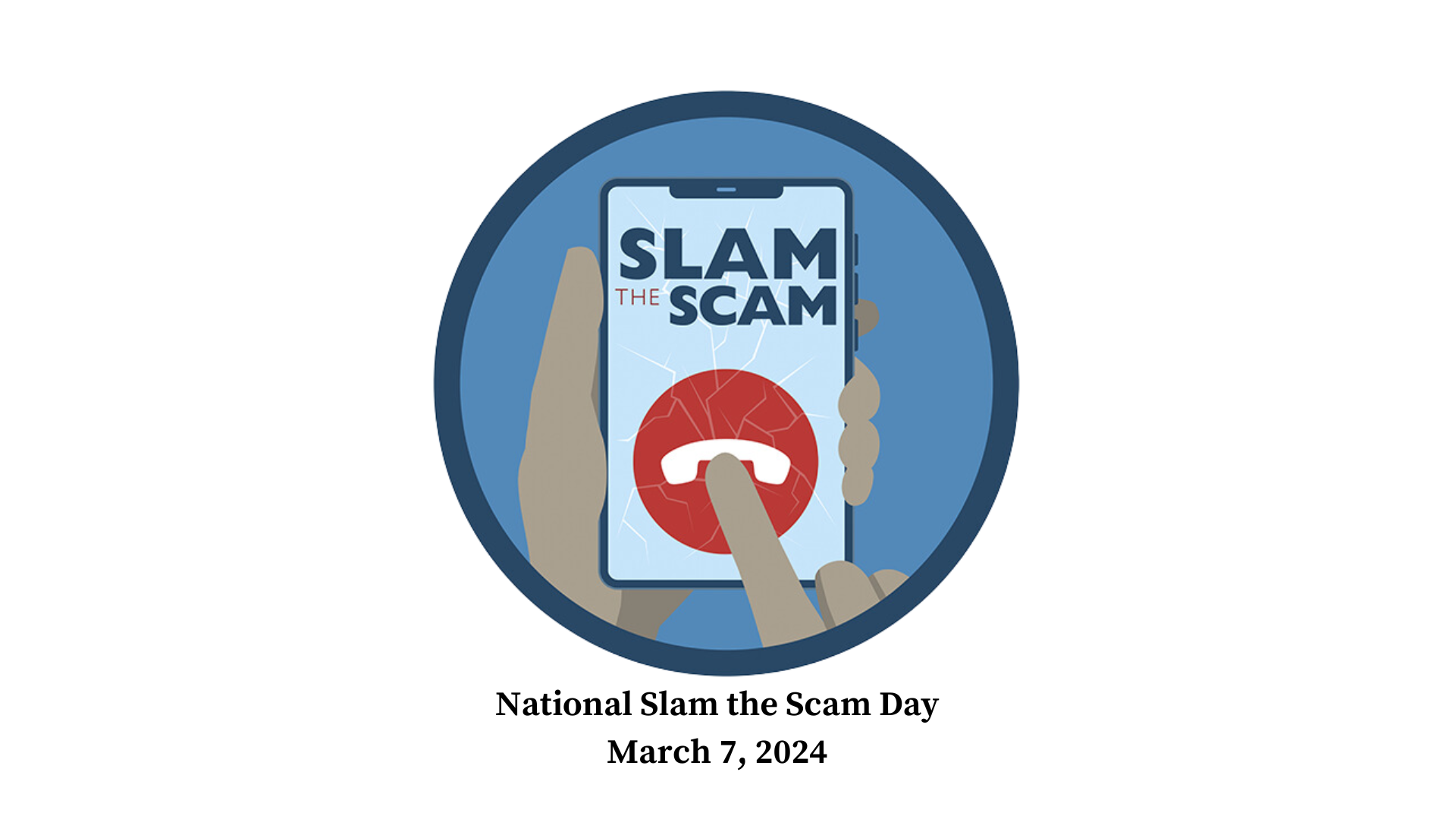On National Slam the Scam Day and throughout the year, the Social Security Administration gives you the tools to recognize Social Security-related scams and stop scammers from stealing your money and personal information.
Help protect your loved ones and people in your community this Slam the Scam Day by:
- Educating them about government imposter scams. Let them know they shouldn’t be embarrassed to report if they shared personal information or suffered a financial loss. It is important to report the scam as quickly as possible.
- Sharing our Scam Alert fact sheet and helping educate others about how to protect themselves.
Report Social Security-related scams to the Social Security Office of the Inspector General (OIG).
Report a ScamVisit www.ssa.gov/scam for more information and follow SSA OIG on Facebook, Twitter, and LinkedIn to stay up to date on the latest scam tactics. Repost #SlamtheScam information on social media to keep your friends and family safe.
Other Scams include
A new gift card scam may be coming to a church near you
Scammer impersonates a church member to get a church directory.
“Then, the next level of the scam began with individual solicitations by email for help with a “discreet favor.” That fraudulent email had [email protected] (so it looked legitimate at a glance with both my name and the church name like my legitimate email has). The emails had a signature tag with my name, “pastor” or “senior pastor,” and the church name.
If people replied, they were asked for gift cards (4 $500 Visa cards) and to send the info electronically.”
Funeral Home Scam
The perpetrators scour online obituaries and then call loved ones of the recently deceased claiming to be from the funeral home where arrangements have been made. The scammers tell the people they need to pay a deposit to secure their service or cremation.
Here’s how to spot and avoid this scam:
Resist the pressure to act immediately. Honest businesses will give you time to make a decision. Anyone who pressures you to pay or give them your personal information is a scammer.
Contact the funeral home directly. Use a phone number that you know is real, not one you got from the scammer’s text, email, or phone call. If you don’t know it, you’ll find it on the General Price List you got from the funeral home.
Know how scammers tell you to pay. Scammers want to get your money immediately, and in a way that makes it hard to track them down and hard for you to get your money back. Never pay someone who insists you pay with a wire transfer, cryptocurrency, or a gift card. And never deposit a check and send money back to someone.
If someone tried to rip you off, report it to the FTC at ReportFraud.ftc.gov.

